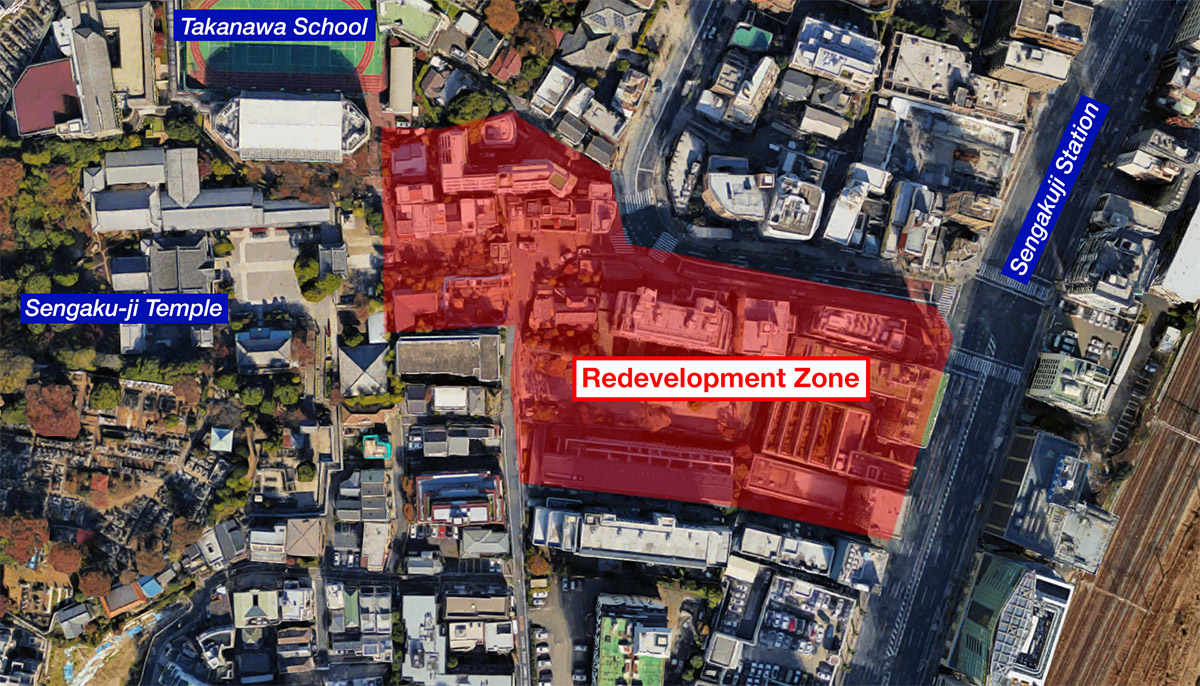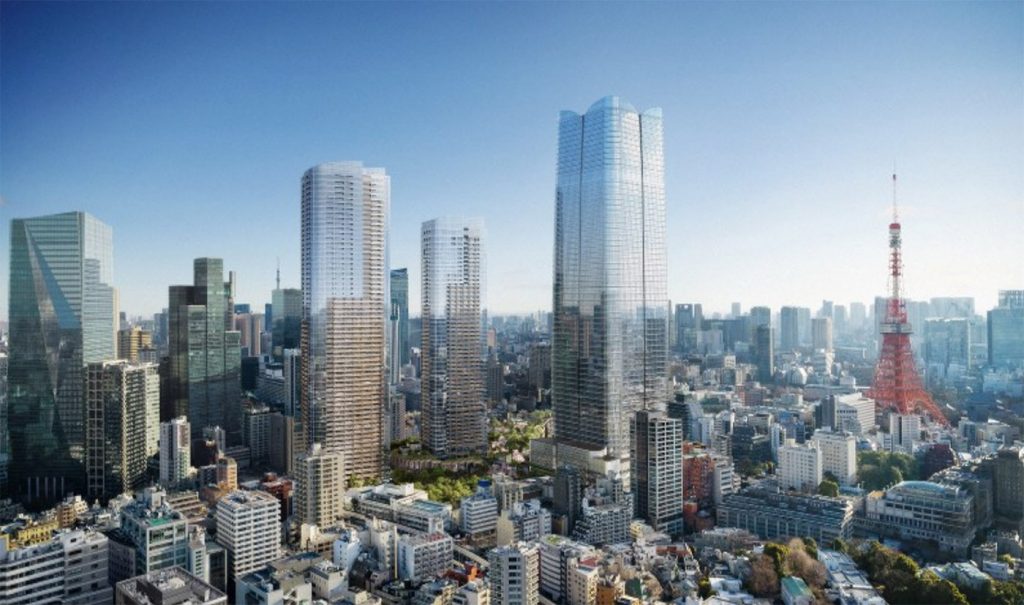215m tower for Minato Mita District

Details on Sumitomo’s redevelopment of a 4 hectare site just west of Mita Station in Tokyo have been released. The Mita 3 and 4 Chome District Redevelopment will include a 215m tall, 42-storey office tower, as well as several low-rise residential buildings. Construction is scheduled to start in 2018 with completion by 2023.Read more
Post-2020 Real Estate Developments in Tokyo
Construction in Tokyo does not look like it will slow down after the 2020 Olympics, with several major projects already in the pipeline.

390m tall tower for Tokyo Station (2021 ~ 2027)
Located just 300 meters north of Tokyo Station, the Tokiwabashi District Redevelopment will include two high-rise towers - a 37-storey, 230m tall office tower due for completion in 2021 and a 61-storey, 390m tall office tower due for completion in 2027. This will be Japan’s tallest building when complete.Read more
Demolition underway on Omotesando public housing complex

Demolition of the old Aoyama Kitamachi Apaato housing complex in Omotesando is underway. Asbestos removal from four buildings is currently being carried out. Asbestos sheeting and spray-on insulation was used in some of the buildings’ rooftop waterproofing, plumbing insulation, and chimneys.
The city-owned public housing estate will soon be replaced with high-rise residential, aged care facilities and retail space.
The Tokyo Metropolitan Government has chosen six developers to partake in the project, including Tokyo Tatemono, Mitsui Fudosan, Kajima Corporation and Maeda Corporation.Read more
Potential redevelopment for area near Sengaku-ji Temple

An area just east of Sengaku-ji Temple in Takanawa, Tokyo, has entered the very early stages of discussions for a possible future redevelopment. The area covers 11,000 square meters and currently includes a number of low-rise houses, office and apartment buildings. It also includes Sengaku-ji’s Middle Gate and temple road.
Sumitomo Realty is taking part in planning and preparation. A town planning decision is eyed for 2018 and construction could start by 2020.Read more
65-story building with 1,000 sqm penthouse apartment planned for Toranomon

Long-awaited plans for the Toranomon-Azabudai District in central Tokyo have finally been released. The development, which will be carried out by Mori Building, will include a 65-story mixed-use building that will contain mostly office space, as well as apartments and an international school. Construction is scheduled to start in 2018 with a completion date in 2022.
The 330 meter tall building will be Japan’s tallest building when complete in 2022 and just 2 meters shorter than Tokyo Tower, although it is expected to be overtaken by a 390 meter tall office tower planned for the Otemachi district near Tokyo Station.
The building will have a total floor area of 449,000 square meters (approx. 4.8 million sq ft). In addition to the office space, there will be 80 apartments on the 56th ~ 65th floors of the building. The smallest apartment will be a generously sized two bedroom apartment with a floor area of 125 square meters (1,345 sq ft), while the largest apartment will have a floor area of over 1,000 square meters (10,760 sq ft). This apartment could possibly be the largest apartment ever offered in Japan.Read more
Two 235m towers for Shibaura

Nomura Real Estate is redeveloping one of its office towers in Shibaura, Tokyo. The 40,000 square meter site is located just south of Hamamatsucho Station on the Yamanote Line and near Tokyo’s waterfront.
The Shibaura 1 Chome Redevelopment Project will include two 235m tall buildings with a total floor area of 580,000 sqm (approx. 6.24 million sq.ft). The South Tower will be 46-stories and contain office, hotel, and retail space, with completion due for 2023. The North Tower will be 47-stories and contain office, 350 apartments, and retail space, with completion due for 2029~2030.
Voting ratios relaxed to encourage speedier demolition of earthquake-damaged buildings in Kumamoto

On September 30, the Japanese government voted in favour of enacting an exemption to the apartment redevelopment law in order to help speed up redevelopment of buildings damaged by the Kumamoto earthquake in April. Under the special exemption, the voting ratio for demolishing an apartment building and selling the land has been reduced to 80% for damaged buildings in Kumamoto. This is the second time the exemption has been applied. It was first applied to three buildings damaged by the 2011 Tohoku disaster in Sendai city.
Ordinarily, 100% of apartment owners must agree before a building can be demolished and the land sold. However, if the building has been seriously damaged in a major earthquake, the ratio can be reduced to 80% if certain conditions are met. Nevertheless, obtaining 80% agreement is still a difficult task.
According to Kumamoto City, 19 apartments buildings were considered to be completely destroyed, 21 suffered major damage, and 52 suffered partial damage in April.Read more
